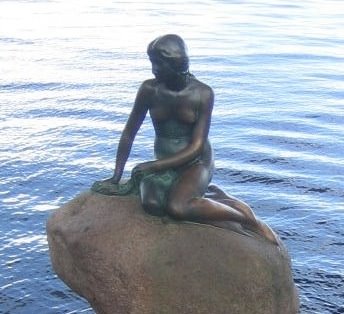Most of mobilizing for peace cell meetings involves telling people what's happening and them nodding and saying they might come. However, about once a day so far, someone will respond to us with their own story. Tuesday in Zone 10 (the camp is divided into 12 zones and each day we have a peace cell forum in a different zone) when Michael, the peace cell leader, was explaining the purpose of the meeting to discuss ethnic tensions and how to rebuild trust between tribal groups this old woman interjected. She was a big old woman, with gray hair, a scar running across her face, and a very swollen knee. "Do you really think love will bring an end to the fighting?" she asked. "The problem is really, more than anything, poverty," she continued, and started crying. She pointed to her scars, her knee, her hair. She is in huge need of food and medical treatment, neither of which she can afford. So if someone gave her the money she needed, she would do anything he said, even kill her own brother. Michael said, "If I trusted you, if I loved you, even though you are from a different tribe, I would give you money when you needed it." But honestly, no one here, no matter how much love they have, can afford to help all the people who need it.
Yesterday we were in Zone 11. We were talking to this woman about the need to build peace and trust "for when we go back to Liberia." "I can't go back to Liberia," she said, showing us the machete scars all over her body. "The man who did this to me is still there." She has photos of herself bandaged up as well as the medical report from the hospital. The man, who attacked her over something as simple as borrowing a cell phone, from what I could understand of her story, chased her to the hospital but once she was treated she managed to escape to Guinea and then to Buduburam. The man managed to find her in Buduburam, attacking her again and leaving a threat letter at her house, saying that if she did not surrender the pictures and medical report he would kill her and her family. If she survived he would chase her until he killed her. She went to the local police with the letter and the man when back to Liberia. She showed us the photos, the medical report, the letter, and the police report. She is never alone at her house, always with either her husband or brother, and she is afraid to sleep there. They sleep in the house at night, while she sleeps somewhere outside, feeling safer there than in her house where she may be found by the man. Back in Liberia, this man is a police officer.
Today (at least so far) had no horror stories. However, we ended up spending at least a half hour talking to one man. A teacher in Texas, he came here looking for his daughter and is waiting to clear some things up with his papers. As a former student activist and then politician in Liberia, he had his own opinion to share with us. "Tribalism is not the problem," he said. "The minority Americo-Liberians holding the power is what is wrong. Tribalism may be the effect/symptom of all that, but you cannot solve the problem by just addressing the symptoms. You will still be sick. You must address the root, which is the Americo-Liberian power stronghold, which has been re-established in Liberia in Ellen Johnson-Sirleaf's government." Rather than just listening this time (especially since I knew he could actually understand me), I got into a bit of a discussion, pointing out that the symptoms in and of themselves are killing people and must be addressed. Plus this is just one of the many issues we talk about. The true source of the problem may not be tribalism, but that does not mean it is not a worthwhile discussion, especially considering even he could not propose a solution to the root problem he identified. Still, I think he was completely right that the issue of Americo-Liberian power should not just be swept under the carpet as it is but addressed and changed. He then started explaining things more in detail to Michael, who was learning a lot, but at another point I would like to discuss with him the institutional problems that will not and did not change with indigenous Liberians in power, especially considering the degree to which he glorified the Doe regime. He may be right about the all good things Doe did to improve the country and empower the ordinary people, but that does not change other atrocities and violence that happened under him.
So far it's been a pretty interesting week. Now that I'm not sick I'm enjoying everything a lot more. I'm starting to build relationships, on camp and with my fellow volunteers. This weekend I'm going to Akosombo on Lake Volta with some other volunteers. I don't really know anything about it but it should be interesting and pretty. But before that I've got some more mobilizing and a peace cell meeting to attend.
P.S. Leave comments! I like to see who's reading and hear what you have to say!
Subscribe to:
Post Comments (Atom)

No comments:
Post a Comment